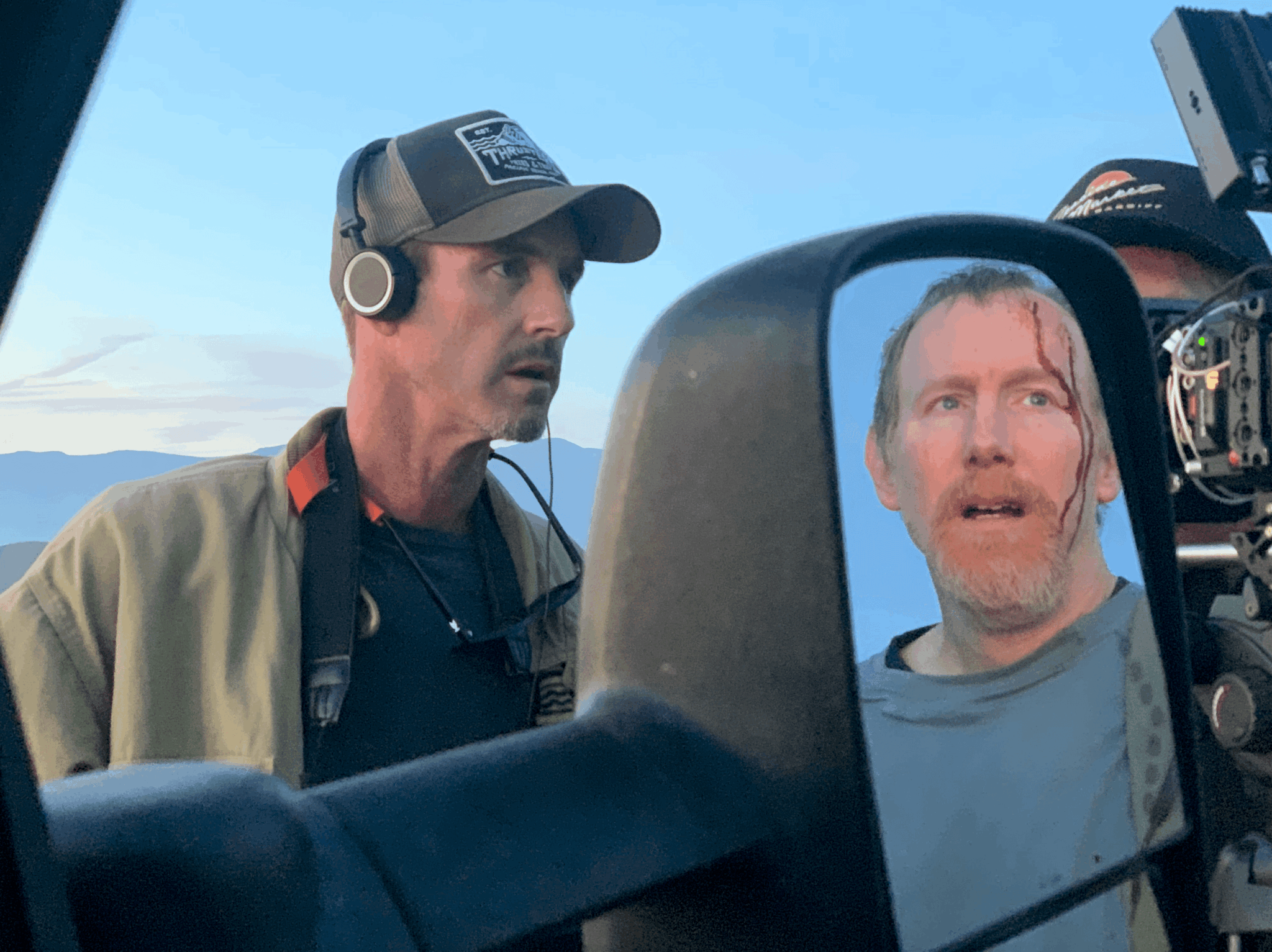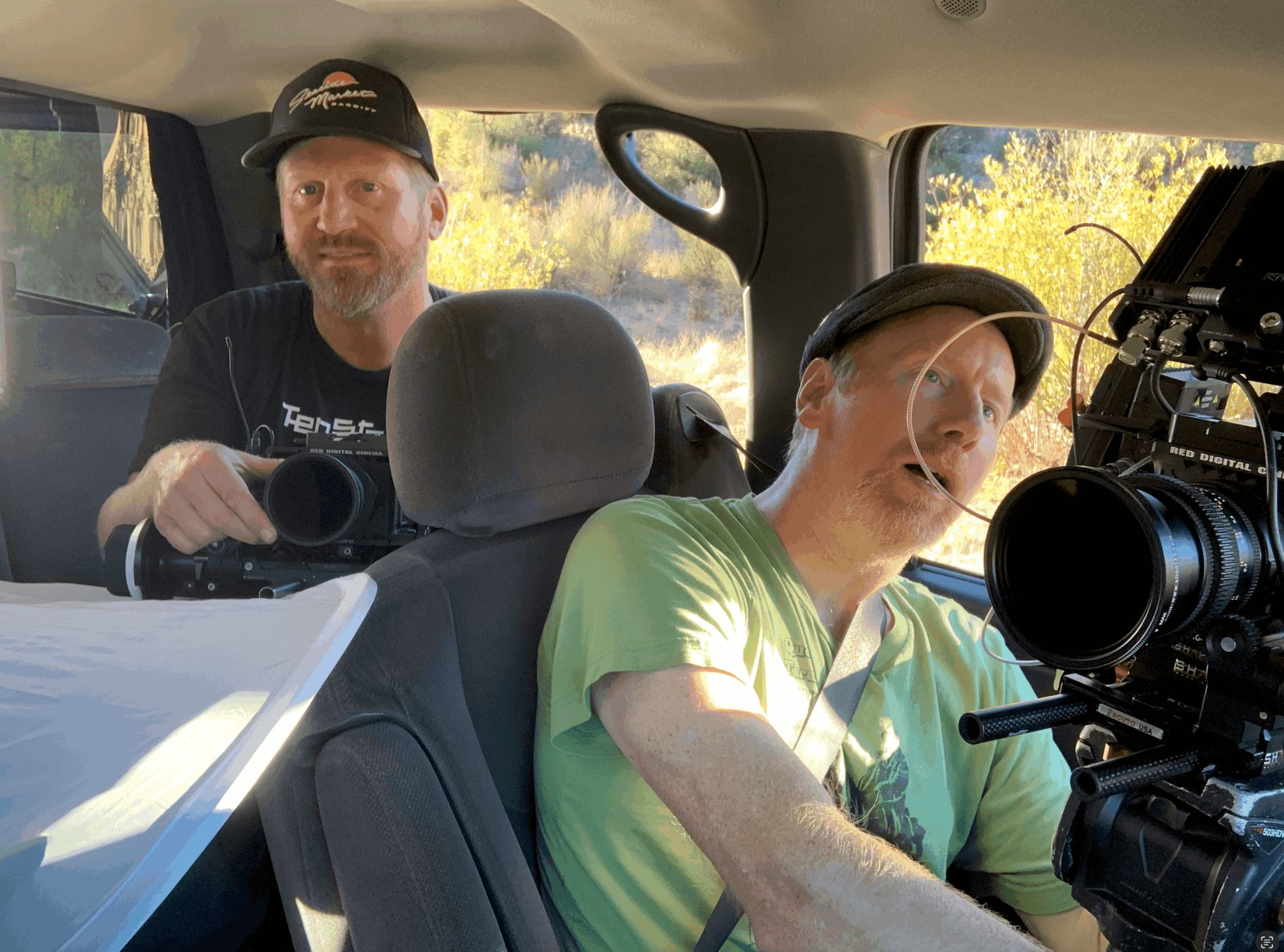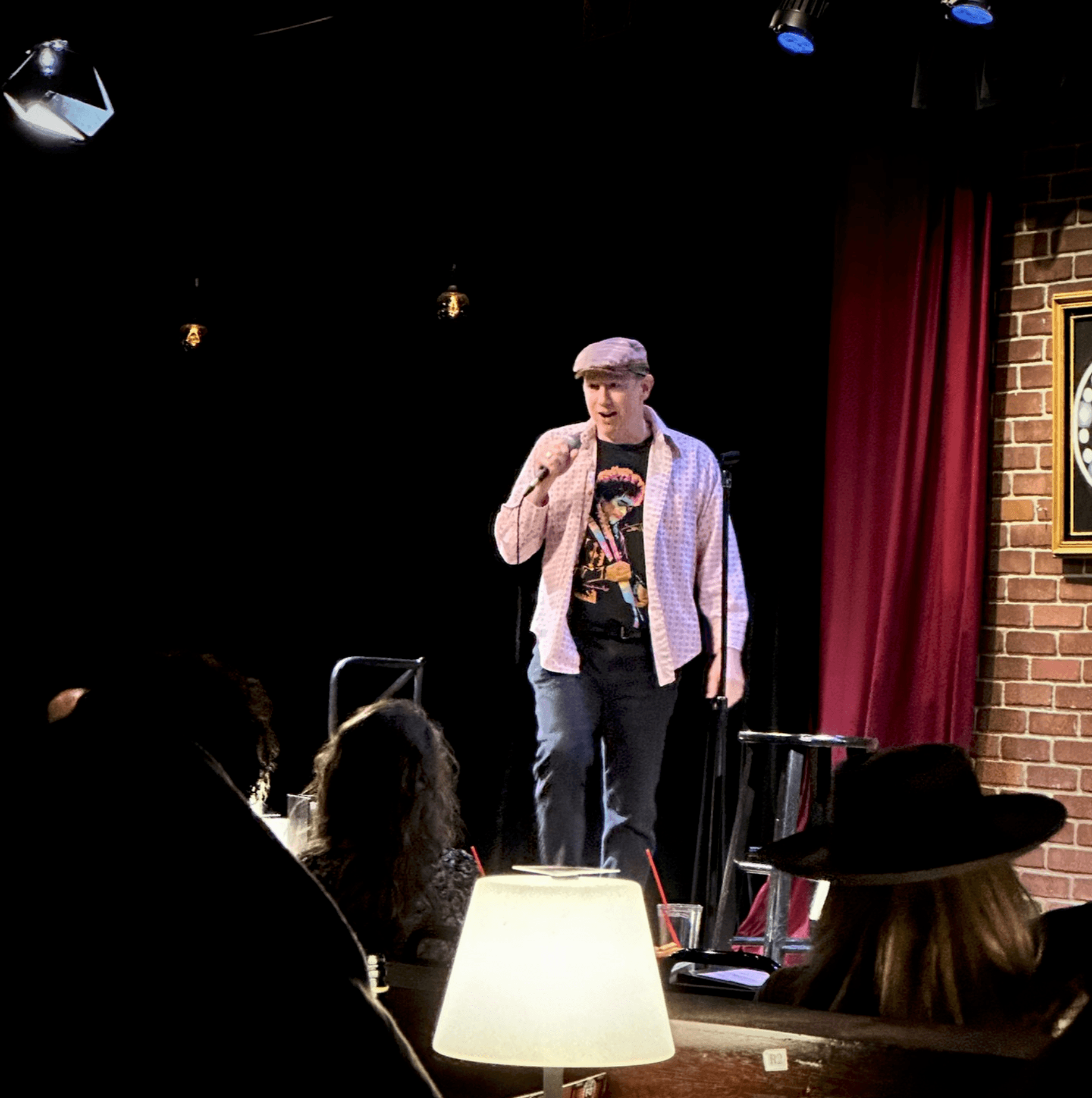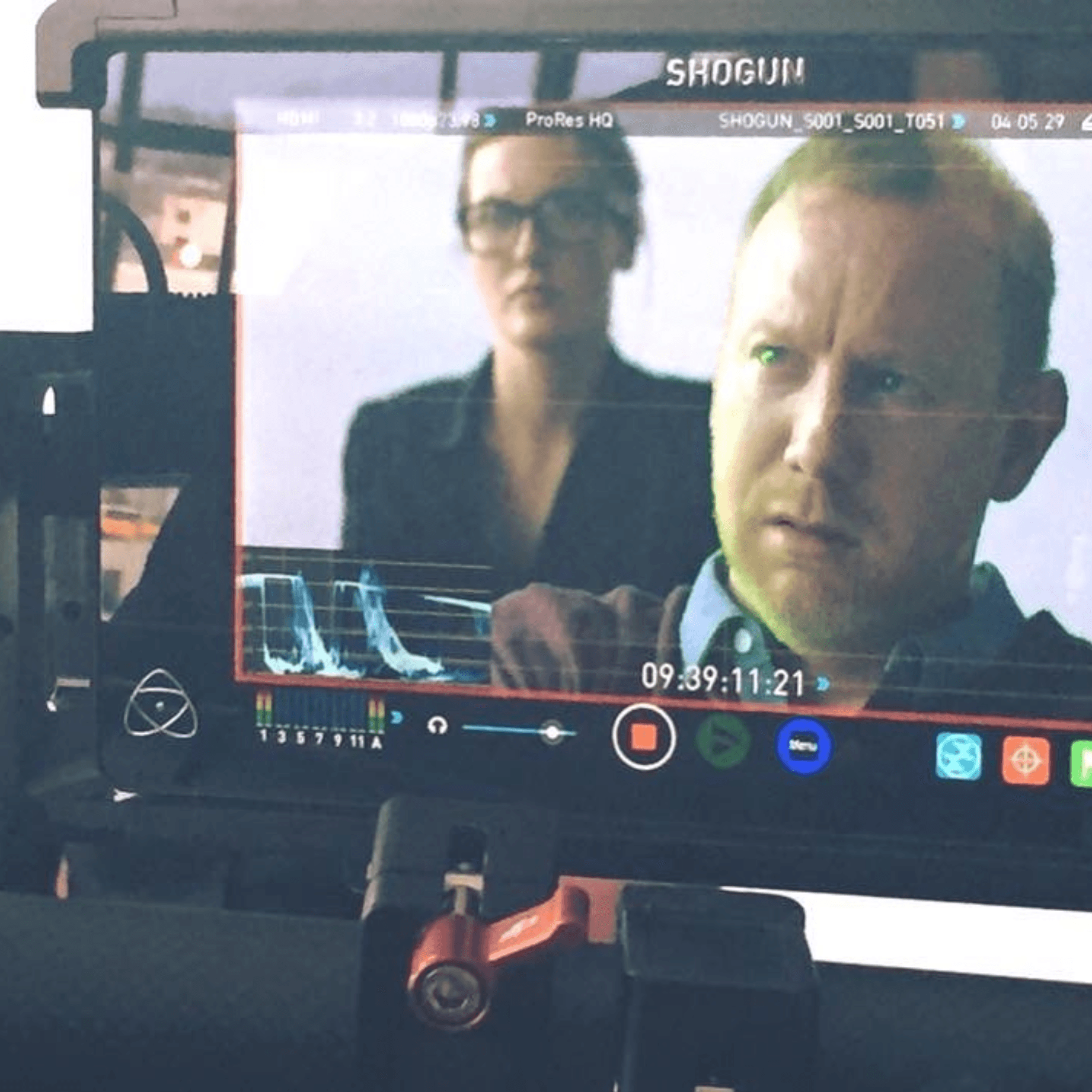We recently connected with Robert Murphy and have shared our conversation below.
Hi Robert , thanks for joining us today. Can you talk to us about a project that’s meant a lot to you?
The project that means the most to me now is actually a project I’m doing next year. It’s a script I’ve written called “King of Pain” about a struggling alcoholic who gets fired from his low-wage warehouse job, and then decides to move to Nashville to make it as a country singer. I used to work in a warehouse in Texas myself, and I met a lot of the guys who worked there. I could see how trapped they felt, and how they would work so hard in such hot temperatures, and never get promoted. I mean, these guys could take a car apart and put it back together, but their personal lives were pretty messy. I thought it would be good to explore one of those characters in a feature film, and write a story that would give them hope for a better life. Also, country music is such a big part of the culture in Texas, and I thought it might be interesting to see someone from that culture writing country songs that explore subjects that country music usually avoids—-including songs about being bisexual, songs that question systemic racism in the south, songs that question our addition to alcohol as a society, and songs that show a desire to move out of that world and into a more open, just place. So it’s still country music but with a progressive philosophical edge.

Great, appreciate you sharing that with us. Before we ask you to share more of your insights, can you take a moment to introduce yourself and how you got to where you are today to our readers.
My name is Robert Murphy, and I’m from Beaumont, Texas. I got into filmmaking and writing music completely by accident. I know that when I was in high school, I was reading a lot of comic books and graphic novels. I was especially drawn to Alan Moore’s “Watchmen” and Frank Miller’s “Batman: Year One.” That kicked off my obsession with striking visuals and bold storytelling. I was also spending time between watching Hollywood classics such as “Die Hard” and “Star Wars” along with art house films such as “Wild at Heart” and “Dead Ringers.” But I also watched cult classics such as “Slap Shot” and “Thank God It’s Friday.” So I developed an appreciation for a wide variety of films, but especially those with bold ideas, dark comedy, and daring visuals, regardless of budget.
In high school, I remember our English teacher giving us the option to either write a paper or make a video of the Shakespeare play Julius Caesar– and so of course me and a few buddies decided to make a 45 minute video called “Julius Seizure,” a complete Airplane-style parody. We really just did it for fun, but there was a willingness to spend ungodly amounts of hours, collaborating and writing and filming and getting costumes and rehearsing and planning and organizing—so there was quite a bit of passion there from the start, in terms of wanting to put these projects together, and make them happen. We also did a parody of “RoboCop” called “RoboCaesar,” which was a big hit in class. I also did a short film making fun of sports commercials called “Rock Scissor Paper World Champion.”
Sometimes I would try to re-create shots from a comic book or graphic novel or maybe a Kubrick movie. I think I was really obsessed with a Clockwork Orange and The Shining at that time.
Music wise, growing up, I discovered my parents’ album collection, which was filled with Beatles and Dylan records. That inspired me to collect music of my own, most of which I did by taping songs that came on the radio and making playlists WAY before Spotify. In high school, my brother Billy and I started getting into rap music, and so we recorded a few comedy songs such as “The Great Gatsby Rap.”
I remember a few years later, in college, I was a English major, which I enjoyed, but it was leaving me somewhat unfulfilled , I remember going to see the film Goodfellas in the theater, and as soon as I saw that, I knew that I wanted to make things that made people feel like that. There was some thing in that rock ‘n’ roll style of Scorsese that kicked my adrenaline into high gear and took me to a place that I haven’t been before, made me feel like I was on drugs almost. It was like listening to Led Zeppelin IV for the first time, and so I immediately started taking some classes at the University of Texas so that I could learn how to do this stuff– try to figure out if there was a way to make a career out of it, because I was very passionate about it. At the same time, I was picking up a guitar for the first time, and I realized that I could write songs relatively easily, even though I couldn’t play guitar very well. I was definitely able to come up with lyrics and melodies, even though I couldn’t sing worth a shit. So while I was graduating from film school and trying to make a few short films outside of school, I was also spending two hours a day driving around Austin, Texas, practicing vocals by singing along to U2’s Achtung Baby and Nirvana‘s Nevermind as well as any Beatles album I could find. And I was doing this just so that my voice wouldn’t suck so bad— because I wanted to actually record some of the songs I had written. My brother is a fantastic singer, so I figured if he has a lot of talent, maybe I have some vocal talent in my DNA? And so I eventually started a band in Austin, while I was still trying to do videos and films. And I still do both of this day. 15 feature films and 100 songs later, I’m where I’m at today, very experienced but always looking to learn more.
In terms of my brand, and what I do with clients, I usually work as a cinematographer and editor on movies. My job is to collaborate with a filmmaker and make their vision come to life. I like to really get to know the filmmakers I’m working with, and I’m very big on prepping for each and every shoot. A lot of the time I will try and come up with ambitious shot ideas which we can execute for less money, and so I often try to save money in the budget. But in the end, I just want to make great art, And if the script’s not good, I won’t do the project. It’s a vibe thing. If it doesn’t feel right, I’m out. I’m not in this for the money. Musically, it’s the other way around. I usually write the songs myself and then I hire musicians to play or song on the tunes. So I try to find the right fits for my songs and my music. It’s tricky but Soundbetter is a fantastic website to find other pro studio musicians. That’s where I usually go.

Looking back, are there any resources you wish you knew about earlier in your creative journey?
There are so many resources you can take advantage of now. Here’s my list of faves:
1. Hollywood Black Book — Erman Baradi has created a fantastic networking group for creatives in LA and I try to go to events when I’m not busy with work. Bring your business cards! They eve have “speed networking.”
2. FilmHive is another Hollywood group for primarily cinematographers and directors. They have incredible zoom meetings with pro cinematographers and directors, and you get unbelievable career advice in these sessions.
3. Soundbetter—If you need to hire pro studio musicians for your music, this is the place to go.
4. Musiversal—another cheaper site where you can hire session musicians. Also great!
5. Mandy/Backstage—this is where I go for new jobs or to hire film crew.
6. Filmmaker’s Academy–great tutorials on filmmaking, everything from lighting to color to directing.

Is there something you think non-creatives will struggle to understand about your journey as a creative? Maybe you can provide some insight – you never know who might benefit from the enlightenment.
The biggest lesson is to realize that everyone’s opinion is just a blip in the wind. Don’t let criticism derail your passion. Let it fuel you. The most successful people I know in Hollywood were told multiple times that they weren’t good enough to make it. That should tell you something. So what really matters is what YOU think of YOURSELF. You have to love yourself, you have to support yourself, and you have to give yourself credit when you deserve it. And if you’re having problems with THAT, then you need to surround yourself with positive, loving friends, and also perhaps try some therapy. It’s very important to work on your own confidence and self-image, because if you don’t have that confidence than it’s really easy to just question every little thing you do—to the point that you won’t ever finish anything. You just have to dive into that deep water—it’s cool at first, but then you get used to it. And join a support group—for writers, actors, filmmakers—-that will help, too, when you need to find collaborators.
Contact Info:
- Website: https://www.robertmurphy3.com
- Instagram: https://www.instagram.com/cuckoosnest333/
- Linkedin: https://www.linkedin.com/in/robert-murphy-57645816/
- Youtube: https://www.youtube.com/watch?v=CRqyEJLXX3c
- Soundcloud: https://soundcloud.com/sybilmusic


Image Credits
Photo 1: Brent Florence directing Robert Murphy in “Red Mountain”
Photo 2: Robert Murphy shooting “Red Mountain” with Peter Hulst
Photo 3: Robert Murphy doing stand up comedy at Flappers Burbank
Photo 4: Robert acting and directing “Rage” with Lola Nekrasova
Photo 5: Robert’s shadow filming “Hollywood.con” – photo by Mika Boorem
Main photo: Robert Murphy filming “Hollywood.con” with director Mika Boorem


